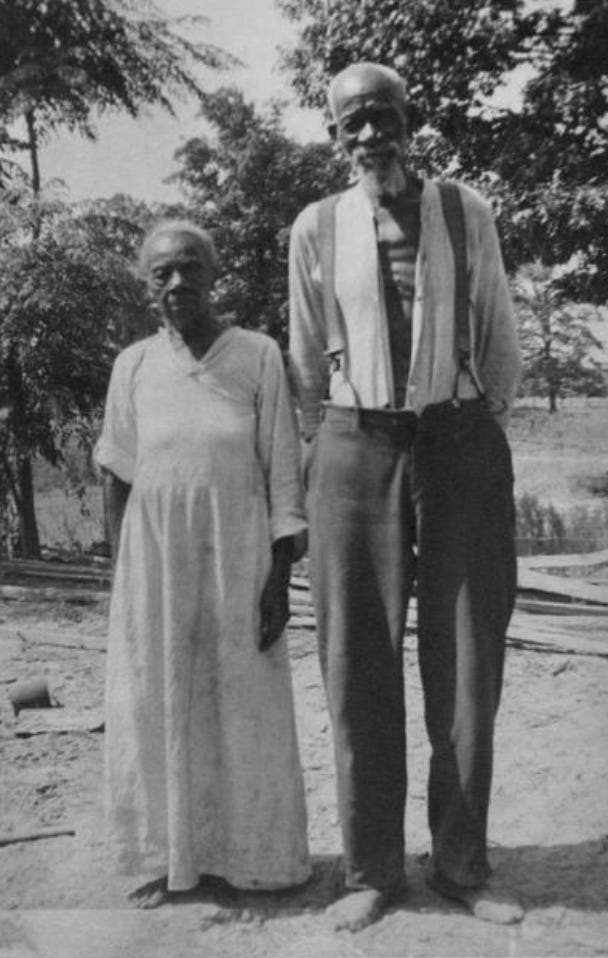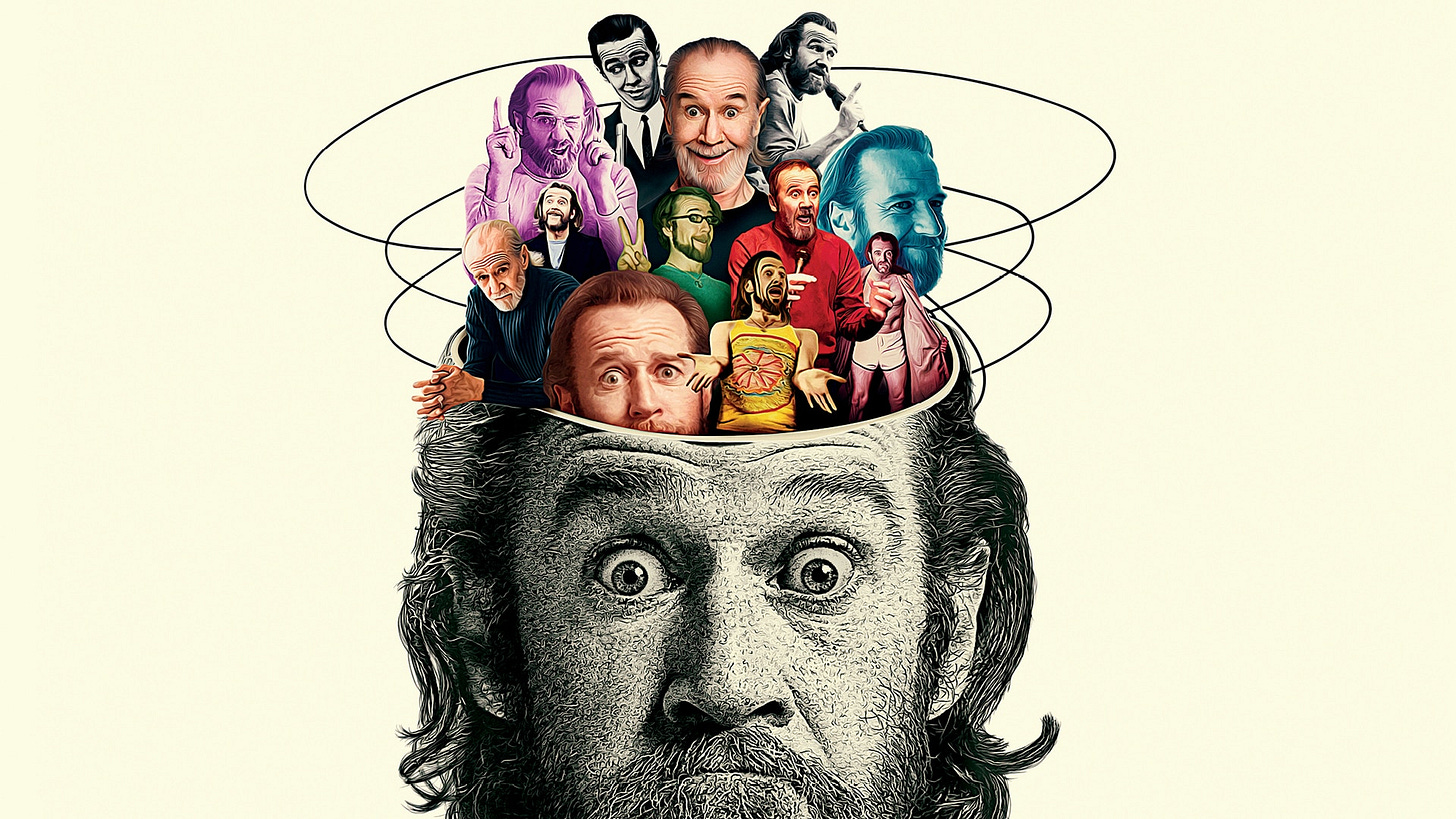Sally's Weekly Journal: This Week's Obsessions Brought to You By the Year 1937!
Two disparate but fascinating Depression-era subjects that have been eating up my attention!
This week, I'm having a terrible time getting anything done! I try, but dammit, the rest of the world is just too interesting. The combination of working from home, being pathologically curious, and always looking for new material to share in this space has led me deep down some rabbit holes! This week, I've been fascinated by arguably the best of America's contributions to the culture from the year 1937: a collection of Depression-era interviews with formerly-enslaved Black Americans, and the life and work of social agitator, educator, and comedian George Carlin.
I've also been reading with particular interest about the various types of cacti, about Mark Twain's body of contemporary-events commentary, and about the immediate availability of functional, legitimate, correctly-installed home plumbing! As someone with IBS, that last has been a special concern of mine this week - the less said about why, the better.
I trust, however, that we are on our way to a permanent solution. I hope so! I'll feel much better, and I'll have even more time to learn about, in no particular order, these two curious products of 1937: the Works Progress Administration's Federal Writers’ Project slave narratives and George Carlin.
Let me talk at you for a minute!
The WPA Slave Narrative Collection at the Library of Congress

“Born in Slavery: Slave Narratives from the Federal Writers' Project, 1936-1938” is the formal title of this remarkable research bank now housed with the Library of Congress. (Info available on photos of the former slaves varies widely, but all shown here come from the Library of Congress' records and are available to any viewer online.) I had long been familiar with these interviews and supporting documents, and had even read a few, but it had been years. Somehow, this vault of information reached out and grabbed me again! This 1936-1938 collection of interviews was created by the Federal Writers' Project, one of many New Deal initiatives designed to provide work for the involuntarily unemployed labor force during the Depression.
And thank goodness it was! Interviewing former enslaved people in 1936 - those who actually remembered living in slavery - would have been akin to interviewing Holocaust survivors in 2015: trying to record a lived experience that's crucially important to the understanding of both history and current affairs, yet one less and less available from direct sources with each passing day. Only the very last of that cohort was still around to share the information.

Slave narratives weren't new - we think readily of Frederick Douglass and his remarkable achievements. What was different here, though, was that these were ordinary people who'd been enslaved. Many still could not read or write; most were still living in great poverty on or near the land they had once been forced to work. Actually, many were still working that same land as sharecroppers, even as it often passed out of the possession of the original enslaving family.

These narratives aren't always easy to process. It's not easy to hear an elderly formerly enslaved woman say, as did Ms. Rachel Adams, that she was one of 17 siblings and could only remember the names of two of them. It's not easy to hear Mrs. Hannah Austin say, as she describes her family of “town slaves" who worked in a dry-goods store belonging to their enslavers, the Hall family, “I did not have to work and spent most of my time playing with the Hall children. We were considered a better class of slave and did not know the meaning of a hard time.” She also refers to herself not as a slave, but as a servant.

This is uncomfortable, I know. It's awful, especially to modern ears, to hear of so many siblings - who spent so little time together before being sold and separated - that one of them can't remember the others’ names. I mean, my two brothers and I may get on each other's nerves occasionally, but I'd be shocked if they're out there telling people, “I remember there was some older, bossy girl around, but that's about all I know!” In a culture that pays a lot of lip service to valuing families, and especially children, it almost physically hurts to read these details of a childhood.
And it's also startling and uncomfortable to hear a formerly enslaved person say “I didn't have to work; I mostly just played," and “We didn't know the meaning of a hard time.” Of course, not all enslavers were physically abusive, and some probably did treat their slaves relatively “well,” according to the standards of the day. And looking on the bright side, feeling grateful one's experience was not worse - those are skills, and they can be life-saving. Still, this hits strangely.
Well, good! That's why I included it here! The legacy of slavery is incredibly complicated, thickly layered, and varied in individual cases by a hundred different factors. I don't think it's too much to ask that modern-day Americans attempt to grasp some of those.
Historians and critics have wondered just how free these former enslaved people felt to discuss their experiences with the almost entirely-white force of reporters who interviewed them. It's a valid question! But having these narratives of slavery is infinitely better than not having them. And they're fascinating.
Check out this collection - you won't be sorry. Here's the link again:
George Carlin
I love comedy. I love it because it brings to the fore important issues of culture, community, and the chaos of life, but in an approachable way we needn't fear. And for my money, no one knew how to capture and capitalize on those exact ideas than the late and truly great George Carlin.
I'm really in the throes of a full-blown Carlinaissance right now. I don't remember how it started, but it makes no difference, because there's no going back. As a linguistics nerd, I'd enjoyed the stand-up of George Carlin for many, many years, especially his language-inspired humor. But I didn't delve as deeply into the uproarious, stinging social and religious critique that consistently lands him in the top two or three of most Greatest Stand-Up Comedians lists.
And that was my critical error! I'm so glad that I eventually did dive into his acerbically witty, spot-on cultural critique! Whether it was a new, unbearable trend, the nonsense of how we use words, or any of the hallowed institutions America uses to reassure itself of its own greatness, nothing was spared his hyperbolically sardonic scrutiny. But it's done in such an inviting and effective way that to merely characterize Carlin as a comedian is to miss the forest for the trees.
I'd actually call the man a philosopher.
This week, I completed his posthumous memoir, Last Words - actually, I read it in a single day! It was terrific. Now I'm working through one of his many humorous titles, When Will Jesus Bring the Pork Chops? I'm also enjoying this gorgeous boxed set of his stand-up specials - Dave and I have seen many, even most of them, but now we're watching them in chronological order to chart the course of his evolution! I'm comfortable admitting that, yes, this is what obsession looks like.
If you need some laughs or a change of perspective, enjoy some excerpts below! Warning - highly likely to be NSFW:
Answering calls for the death penalty to cover a wider variety of crimes:
Reducing the Ten Commandments down to their lowest common denominator:
Helping us realize how shallow consumerist culture is (here, I laugh while feeling a little bit personally called out, which is precisely the point):
Carlin has been gone for almost 15 years now. If he had to go, I'm sure glad he left us with all of this stuff:






